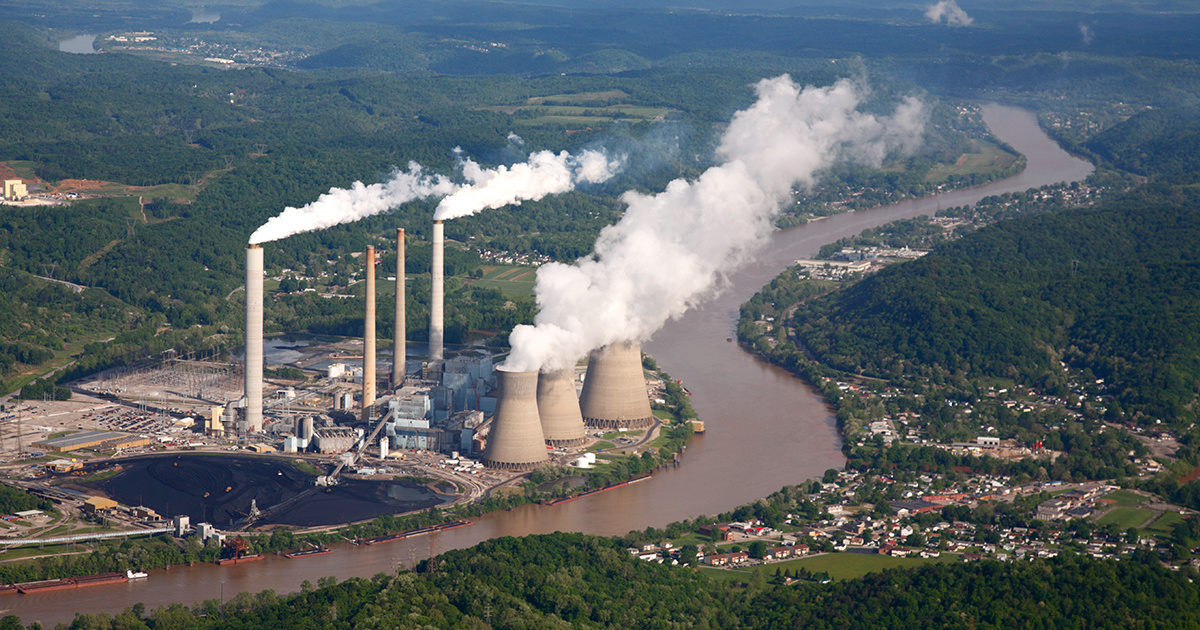
EPA Bows to Coal Industry, Moves to Weaken Mercury & Air Toxics Standards

Coal-fired power plant in West Virginia. Harrison Shull / Aurora / Getty Images
In its latest attack on clean air protections, the U.S. Environmental Protection Agency (EPA) released its new proposal to weaken the Obama-era Mercury & Air Toxics Standards (MATS), putting public health at risk from more than 80 dangerous pollutants, some of which are known to cause brain damage in children.
“This is an unconscionable rollback to serve the coal industry at the expense of all Americans, especially our children,” said John Walke, director of NRDC’s Clean Air program. “And it says EPA’s just fine with allowing brain poisons mercury and lead and toxic carcinogens to fill our skies.”
The standards were the first national limits on air pollution from coal-fired power plants that release toxins like mercury, arsenic, lead and acid gases into the air. Among those, mercury is especially toxic, especially for pregnant women and their babies. The stakes are high: Each year, the standards prevent up to 11,000 premature deaths, 13,000 asthma attacks and nearly 5,000 heart attacks. In fact, MATS delivers up to $90 billion in health benefits.
Nearly everyone supports the standards—including utilities that have already invested $18 billion for pollution-control equipment and are complying with the rules at nearly every coal- and oil-burning power plant in the country. Even Congress is showing bipartisan opposition to a rollback. The standards’ few opponents include coal and industry executives. In particular, coal tycoon Bob Murray, the head of Murray Energy, has long been pushing for a rollback—going so far as to include it in a wish list to the Trump administration soon after inauguration. Murray has financial ties to the Trump campaign and is a former client of the EPA’s acting head Andrew Wheeler.
The reversal of MATS follows other rollbacks by the agency that will harm public health and undo Obama-era climate action—like the decision to undo fuel efficiency standards and the gutting of the Clean Power Plan. MATS is no less significant: At the time of its passing, Walke called the EPA’s move the “most important actions to clean up air pollution from dirty coal-burning power plants since the Clean Air Act was last updated in 1990.”
“[This rollback] is absurd, it’s dangerous, and we’ll fight to stop this rollback with every available tool,” Walke said.
Trump's EPA Wants to Build More Coal Plants as U.S. Consumption Falls to Lowest Level in 39 Years https://t.co/jJLRVvLP8R
— Josh Fox #BanFrackingNow (@joshfoxfilm) December 9, 2018

 233k
233k  41k
41k  Subscribe
Subscribe 